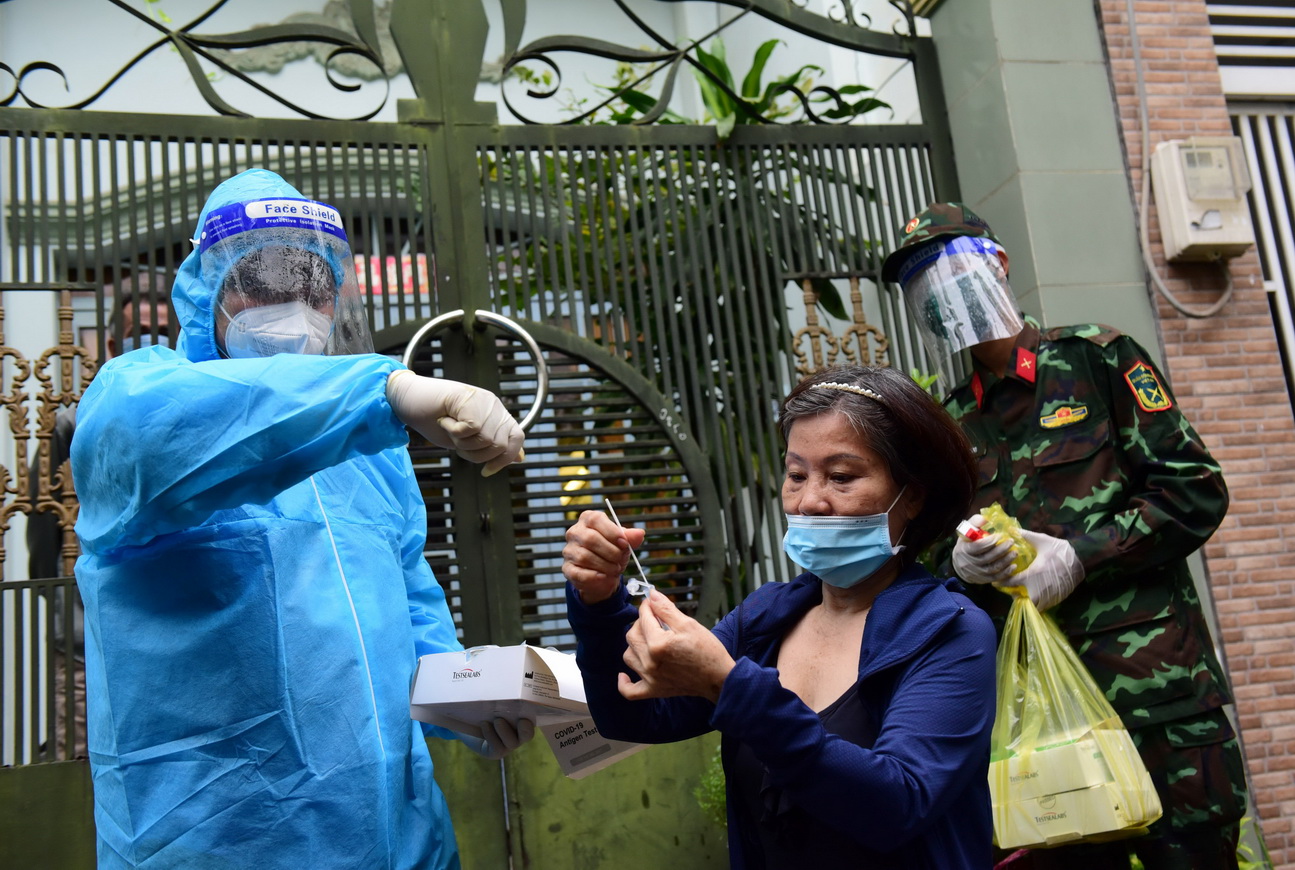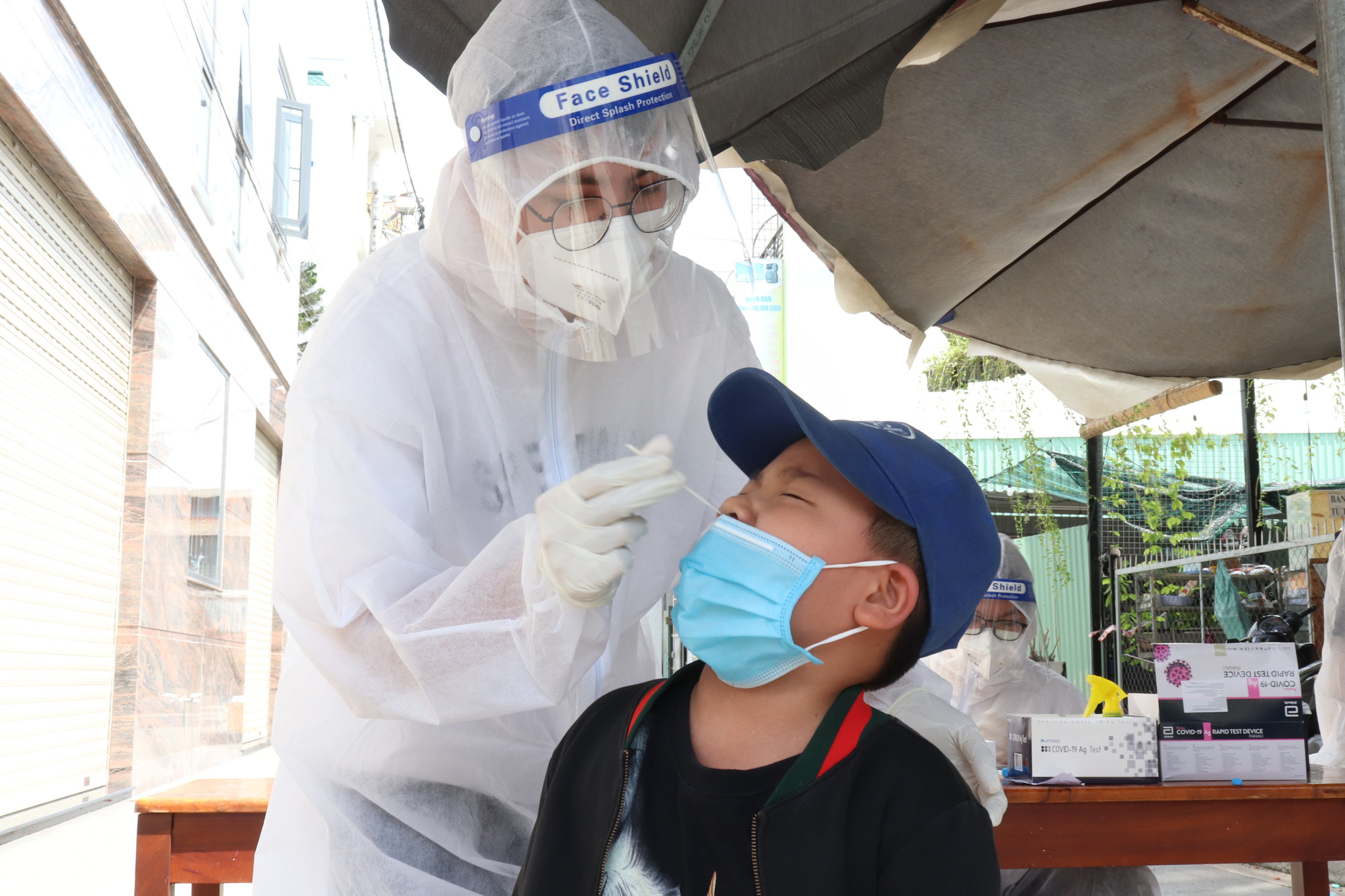Authorities of many big cities and provinces in Vietnam have apparently ignored a call by medical experts to stop mass COVID-19 testing, since the strategy is expensive and almost helpless in the current developments of the disease.
The administration of Ho Chi Minh City has completed three campaigns of citywide COVID-19 testing since a new wave of infections hit Vietnam on April 27 and is going on with a fourth testing phase through September 30.
So far, the city’s health workers, divided into 1,533 teams, have collected a total of two million real-time RT-PCR samples and over 9.5 million others using the rapid antigen testing method.
In the fourth stage, residents of areas at very high and high risk in the southern city are tested every two days in one week, while people living in the remaining areas are subject to testing every four days during an eight-day period, from September 20.
To facilitate the testing drive, the city has sought reinforcements of 1,000 medical workers from the Ministry of Health and 4,000 officers and soldiers from the Ministry of National Defense, besides the health ministry’s additional allocation of ten million rapid antigen test kits.
In south-central Khanh Hoa Province, the provincial People’s Committee has required businesses and building contractors to test their workers frequently, every three, five, or ten days, including fully vaccinated people, starting Thursday.
However, health experts in Ho Chi Minh City previously sent a petition to Prime Minister Pham Minh Chinh and the National Steering Committee for COVID-19 Prevention and Control proposing that mass testing for contact tracing should be stopped.
The coronavirus has spread widely in the city, so it is impossible to isolate all infected people from the community through mass testing within a certain period, they explained.
In addition to Ho Chi Minh City, mass testing also proved inefficient in Hanoi.
Functional forces detected only 21 infections after taking over 2.96 million real-time RT-PCR samples and nearly 1.29 million others through rapid antigen method in the capital city between September 8 and 16.
Notably, all of the 21 infections were discovered in areas at risk.
The city could have saved huge costs if functional forces had focused on tracing infections only in those high risk areas.
 |
| A medical worker instructs a resident to take a COVID-19 test sample by herself in Go Vap District, Ho Chi Minh City, September 24, 2021. Photo: Duyen Phan / Tuoi Tre |
Meanwhile, mass COVID-19 testing is quite costly.
Currently, the national health insurance fund is covering VND740,000 (US$32.5) for each real-time RT-PCR test conducted.
A conglomerate that has given Ho Chi Minh City a million rapid antigen test kits in support and assisted with testing two million samples revealed that the donations cost VND200 billion ($8.77 million) in total.
The Ho Chi Minh City experts, instead, advised local authorities to focus on testing symptomatic people and those at risk like coronavirus patients’ direct contacts who are elderly and have underlying diseases, workers in essential fields such as medical staff, delivery workers, airport staff, and employees at industrial parks and export processing zones.
They also suggested accepting rapid antigen test results without conducting further real-time RT-PCR tests to avoid waste.
Funds and resources for COVID-19 testing should be saved for vaccination and treatment to reduce death rates.
On September 19, the Ministry of Health issued a new set of instructions requesting authorities in cities and provinces to test people in very high- and high-risk areas every three days in one week, and in the remaining areas every five to seven days.
The ministry’s recommended frequency slightly decreased from before.
However, an expert from Ho Chi Minh City still suggested further reducing the frequency of testing in low-risk areas to cut costs and avoid troubles and time waste for residents.
Vietnam has registered 736,972 patients, including 505,859 recoveries and 18,220 deaths, since the COVID-19 pandemic first hit it early last year.
The country has been grappling with its gravest bout, with 732,492 community transmissions in 62 out of its 63 provinces and cities since April 27.
Ho Chi Minh City is most affected with 362,493 patients, followed by Binh Duong Province with 193,235, Dong Nai Province with 43,925, Long An Province with 31,425, Tien Giang Province with 13,643, Dong Thap Province with 8,195, Khanh Hoa Province with 7,620, Da Nang with 4,891, Hanoi with 4,195, and Ba Ria-Vung Tau Province with 4,112.
Like us on Facebook or follow us on Twitter to get the latest news about Vietnam!






















































